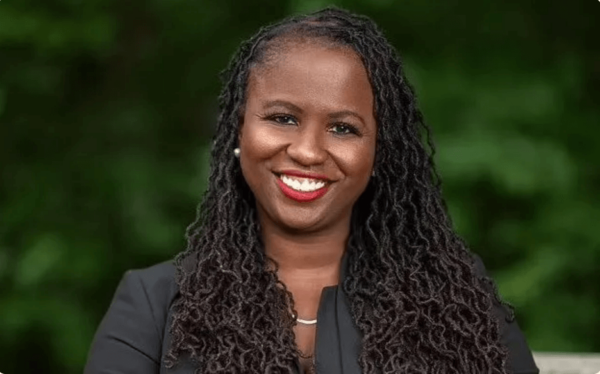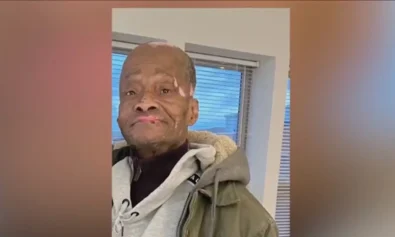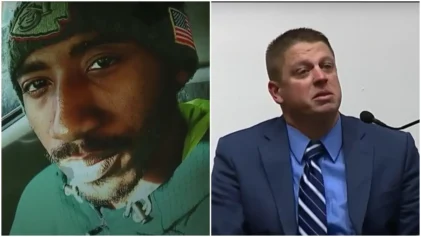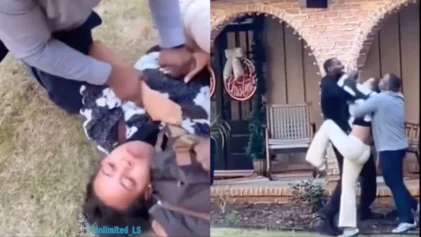One month after a plagiarism scandal toppled Harvard University’s first Black president, another high-ranking school official faces allegations that she also copied academic works without citing sources or giving proper credit.
Sherri Ann Charleston, Harvard’s Chief Diversity and Inclusion Officer, allegedly copied extensive portions of a scholarly essay authored by her husband and claimed credit for it without proper citation in her own academic paper, according to a complaint filed with the Ivy League college on Monday.

The complaint, which was filed anonymously, cites 40 instances of plagiarism in Charleston’s published body of work, while a parallel investigation by the Washington Free Beacon alleges plagiarism in her 2009 Ph.D. dissertation submitted to the University of Michigan.
Charleston, who is Black, is accused of quoting or paraphrasing several authors without proper attribution, while scholars who reviewed the complaint suggest the offenses might likely warrant an investigation into plagiarism and potential data fraud.
The devastating claims might also constitute academic fraud, however it remained to be seen whether Charleston would face the same fate of former Harvard President Claudine Gay, who resigned Jan. 2 amid similar circumstances, abruptly ending a turbulent six-month term.
In the weeks since Gay’s ouster, the university has faced increasing pressure to abandon diversity, equity and inclusion initiatives and to clarify academic policies that didn’t appear to apply to Gay as the college faced a public relations nightmare but never sought to discipline its newly placed leader for academic misconduct.
The new claims targeting Charleston also put the university back in the hot seat regarding the credibility of its research associates and the ideological stance of its diversity administrators, many of whom fall under Charleston’s extensive purview.
Most notably among the charges, Charleston’s peer-reviewed research paper, which she submitted in 2014, allegedly repurposed significant portions of a 2012 study authored by her husband, LaVar Charleston, and presented the old material as new research, the complaint alleges.
Charleston’s 343-page dissertation, coauthored by Jerlando Jackson, the dean of the College of Education at Michigan State University, appeared in the Journal of Negro Education; and two years earlier the study authored by LaVar Charleston, which focused on interviews with Black science students, was published in the Journal of Diversity in Higher Education.
Side-by-side, the two works appear identical, sharing methods, findings, and descriptions of survey subjects, the complaint says.
The interview responses are selfsame in both works, indicating that Sherri Ann Charleston did not conduct new interviews to move the analysis forward, but instead chose to stick with LaVar Charleston’s findings from 2012.
“The 2014 paper appears to be entirely counterfeit,” said Peter Wood, the head of the National Association of Scholars and a former associate provost at Boston University, according to the Washington Free Beacon. “This is research fraud pure and simple.”
In a statement to NBC News, Harvard declined to confirm whether it was investigating the claims against Charleston.
“Harvard is a community that embraces diversity in backgrounds, experiences and perspectives,” the statement said. “Through her leadership as Chief Diversity and Inclusion Officer, Sherri Ann Charleston has advanced our belief that everyone who comes to Harvard belongs at Harvard and, whether a student, faculty, staff member or researcher, should have the opportunity to succeed.”
Some questioned whether the Free Beacon was taking sides in an escalating culture war that emerged in recent months over diversity, equity and inclusion initiatives, as the investigative outlet was among the first to report the plagiarism accusations against Gay, and was now also leveling the claims against Charleston.
The controversy flamed as conservatives demanded colleges and universities abandon the initiatives that they claim promote diversity by disenfranchising white men.
Previously, Gay faced intense pressure to resign following a disastrous congressional hearing in which she and other college administrators were excoriated as failing to address anti-Semitism on their respective campuses amid the Israel-Hamas war.
As the controversy flared, separate accusations arose into suspected plagiarism by Gay in her Ph.D. dissertation, while the Free Beacon and other outlets found instances where the lifelong scholar copied works without quoting, citing or attributing phrases to the original authors.
Initially Gay resisted calls to resign while strongly defending her academic work, saying in a statement on Dec. 11 that “I stand by the integrity of my scholarship.”
But the allegations prompted the The Harvard Corporation — the college’s governing board — to launch an academic probe into Gay, which turned up “a few instances of inadequate citation” that required corrections, but which amounted to no real violations of Harvard’s standards for academic conduct, the board stated at the time.
That decision allowed Gay to go back into her original works and insert citations and quotation marks that had been omitted, but more important, it reaffirmed her presidency amid growing calls to resign after critics claimed students had called for the killing of Jews while Gay was accused of not enforcing student codes of conduct to tamp down incendiary rhetoric.
Later, several new allegations of plagiarism emerged, resulting in 47 total claims against Gay, while seemingly putting the university at a crossroads before Gay finally decided to walk away.
Sherri Ann Charleston joined Harvard in August 2020 as its first chief diversity officer after serving as chief affirmative action officer at the University of Wisconsin in Madison, where she also taught gender studies.
Two years later, she was seated on the staff advisory committee that played a role in the search for Harvard’s next president, leading to the appointment of Gay in December 2022 before she took the helm on July 1.
In her Harvard bio, Charleston is described as “one of the nation’s leading experts in diversity” while her work as a historian an attorney focuses on “translating diversity and inclusion research into practice for students, staff, researchers, postdoctoral fellows and faculty of color.”


